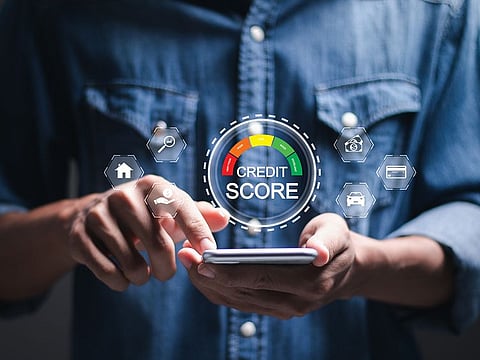Just started earning? Build your credit score young to have a financially healthy future
Credit moves to make when you have started earning an income regularly at your first job

Dubai: When you start earning, your credit will start to matter sooner than you think. A great credit score is the difference between qualifying for an apartment or a low-interest car loan, and missing out. So to have credit ready when you need it, sooner you build a lengthy credit history, the better.
“If you're starting with no credit history, you aren't alone. Globally, nearly 40 per cent of people between the ages of 20 and 24 have little to no credit history to generate a score,” explained Parthiv Patnaik, a Dubai-based banker with nearly four decades in the industry.
“Unfortunately, the same is true for roughly 20 per cent of the population worldwide. While building your credit might seem overwhelming if you haven't thought about it before, but there are many strategies to employ, even if you're just beginning.”
#1: Make it an early habit of paying your bills on time
Jose Paul, an Abu Dhabi-based banking analyst, jokingly refers to your periodical bills as an “annoyingly punctual house guest who visits on the first of every month as long as you earn”. But there is a bigger reason why your routine bills are crucial to your future financial health.
“You make it a point to pay your bills on time to avoid late fees and negative marks on your credit report, but even more so because your payment history accounts for just over a third of your credit score. That’s a big role!” said Paul.
“While credit cards and loans almost certainly appear on your credit report, other bills, such as utilities and cell phones, sometimes report payment histories, too (especially if you’re late paying), show. So paying on time is important for all your bills.”
Can you have a credit score without having a credit card?
It’s a myth among new users that you can build a credit score only with a credit card. You can build credit and have a credit score without a credit card, as credit card companies are not the only ones that report your payment and usage history to the credit bureaus that report on your credit score. However, while a credit card debt is never required in order to build credit, credit cards are known to help boost your score faster as routinely paying your credit card debts prove to the lender or issuer that you are much more responsible in handling or managing debt.
#2: Use debt as a tool to build your credit history faster
But what if you don’t have a credit card in your 20s? Patnaik explained that if you have trouble getting a credit card — and that may be the case if you haven’t had access to credit – there are a few options that could help get you started.
“Banks offer credit cards to help students establish credit, so seek cards made for student use. Also, if you have a family member with good credit who’s willing to make you an authorised user on his or her account, doing so can help you develop your credit history,” added Patnaik.
“You may also consider a secured card. With these, you make a deposit in advance for what you borrow. This gives the bank collateral – which can be used if you do not make your payments. Timely payments on a secured card can help you qualify for credit cards with a larger credit line.”
What is the difference between an unsecured and a secured credit card?
Unsecured credit cards require a higher credit score and more income to qualify than secured cards. Unlike unsecured cards, secured credit cards require a deposit, which is refundable when the account is closed with no balance or if the borrower graduates to an unsecured card after on-time payments.
#3: Don't use all your credit, check your credit once a year
Lenders don’t like to see you use all your available credit, even if you pay it off each month. “The blanket rule for those starting out in your 20s is to try to keep your borrowing not beyond 20 per cent per cent of your total available credit,” said Paul.
What Paul was referring to is called you ‘credit utilisation rate’. For instance, if you have a credit limit of Dh5,000 and your charges total Dh2,500, you use half your available credit for that card. If your balance is Dh1,000, you use 20 per cent.
“To keep your credit score healthy, it's important to not only embrace good credit habits like making payments on time, but also to monitor both your score and your credit report. At the very least, you should be reviewing your credit report once a year,” added Paul.
Bottom line?
Using credit sensibly early on — by keeping tabs on your credit report and paying your bills on time — can help open doors for you financially and professionally. Develop strong habits now and see where your future takes you.
Even though establishing credit may not be at the top of your list upon when you start earning at your first job, the sooner you start, the more opportunities you’ll have to build your credit score and financial health. This eventually helps you build your savings over time!
Sign up for the Daily Briefing
Get the latest news and updates straight to your inbox



